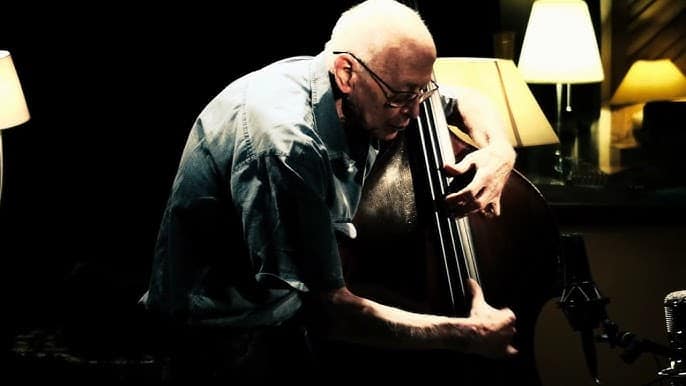Oboist accuser quits social media
mainIt appears that Katherine Needleman’s Facebook page has been taken down and her Twitter feed has gone blank.
Ms Needleman, principal oboe of the Baltimore Symphony, last month accused concertmaster Jonathan Carney of making a sexual advance to her in 2005.
Mr Carney denied it, and two internal inquiries found no substance to the claim.

UPDATE: Looks like she’s back.





Take this from her Wikipedia page:
In 2016, Needleman released a CD of duets for oboe and piano. Upon its receiving a review that contained some criticism of Needleman’s playing,[2] Needleman was caught harassing the reviewer, an oboe specialist. She broadcast the reviewer’s private information over Facebook pages and incited friends and colleagues to send threats and abuse.[3] The influential British journalist Norman Lebrecht describes Needleman’s organisation of an ‘online hate mob’ as ‘reprehensible conduct’, saying she should ‘learn to cope with bad reviews’.[4] The founder of BIS Records, Robert von Bahr, explained that he ‘couldn’t find any trace of Needleman trying to hold back her minions/lynch mob at any stage’, and that not speaking out against about the abuse, at the time or subsequently, ‘speaks volumes’.[5]
Then we remember that she was fired from Peabody for ‘getting into an altercation with a student’, as well as general ‘routine abuse’ towards multiple other students.
Then we have the incident with Jonathan Carney. What was her main allegation? After turning Carney down for sex, he ‘stopped listening to me while we were tuning’, ‘made faces during rehearsals’ and ‘occasionally blocked my way in staircases’.
The BSO investigated the allegations against Carney twice, in 2006 and again this year with the help of outside law firms. Needleman’s claims were dismissed both times. Nineteen of Needleman’s colleagues were interviewed for the investigations and did not back her story. Still not content, Needleman claimed that both investigations were ‘biased’ and took her story to the media.
Now that the forum of public opinion has turned against her, Needleman has removed her Facebook and Twitter pages. I don’t blame her: what an unpleasant woman.
May I assume Melisande One or Two who wanted to change her/his name?
A wise decision. She’s a fine player and this way there’s hope she can salvage her professional reputation.
In her defense, this type of high strung behavior is remarkably typical among oboists. There have been a no. of other situations involving oboists – usually Principals (where the pressure is the highest) which are similar.
I would hesitate to label her negatively. I think she’s a successful Principal Oboe in a top symphony and her logic, her way of thinking and acting out is a result of the job.
She does her job well. That’s key. I think there are emotional casualties that come with that job success. She is definitely not the first top league oboist to make headlines with questionable behaviour. Her case is actually pretty benign as oboists go.
Looks like you have some prejudices about oboists. Maybe you are a flute player?
Or maybe just another oboist, in the rank and file, with a healthy respect for the job demands of a good Principal Oboe.
“Looks like you have some prejudices about oboists. Maybe you are a flute player?”
LOL. Flute players are worse.
Imagine having to sit next to an oboist all the time. You’d end up being a flutist or a violist. Need I say more? 🙂
We should wait for the results of the complaint Needleman has filed with the US Equal Employment Opportunity Commission (EEOC). It is a difficult situation, since it is quite possible that Carney is subtly snubbing her and making her uncomfortable in ways that for all practical purposes cannot be documented.
Such unprofessional behavior is fairly common in orchestras. Due to the close and intimate interactions of music-making, these subtleties can be very disturbing. They can seriously affect the morale of musicians, and in some cases even the morale of entire sections. When they have a basis in gender, they become even more serious.
When a man with a large ego (as might be common for concertmasters) receives a sexual rebuff from a colleague, it is not implausible that he will consciously or unconsciously snub her in the workplace. In fact, that is why Carney’s proposition of a colleague was very unprofessional. Actions like his almost inevitably cause harmful, long-term problems in the workplace.
Needleman has stated that she seeks, “nothing from my charge besides the restoration of a safe and professional working environment and a new level of respect and accountability from the management and board of the BSO.” It is unfortunate that the orchestra can’t seem to resolve this. I think they should seek the help of some highly qualified and experienced conflict mediators.
“That Needleman is not seeking money at this point speaks to her credibility,” Weber (Needleman’s attorney is Jessie Weber) said.” “She would just like to see the BSO remove Mr. Carney from the workplace…”. This quote is from the Baltimore Sun. The difference between your quote of Needleman and her attorney is that what she really wants is Carney fired. If nothing else, that makes her position pretty incredible.
Her statement on Facebook post on September 17 does not include having Carney “removed from the workplace.” Here is her statement:
“I seek nothing from my charge besides the restoration of a safe and professional working environment and a new level of respect and accountability from the management and board of the BSO, an organization that relies upon the generosity of public and private support in order to exist.”
I can’t access The Sun from Europe, so I can look at the full context of her lawyer’s statement. It seems to me that if she wanted Carney fired she would have said so herself. The discrepancy about having Carney removed needs to be clarified. I don’t think there should be discussions about firings until serious attempts at mediating the conflict have been tried.
But. The orchestra investigated and found that there was nothing wrong with his behaviour (and the other musicians also seem to think his behaviour was OK). Why should he have to go through a mediation process when the investigation found he has been behaving appropriately?
She is trouble. Period. Enterprises of different sorts (not just orchestras) sometimes end up hiring the wrong person. It happens every day. Can’t she afford a therapist?